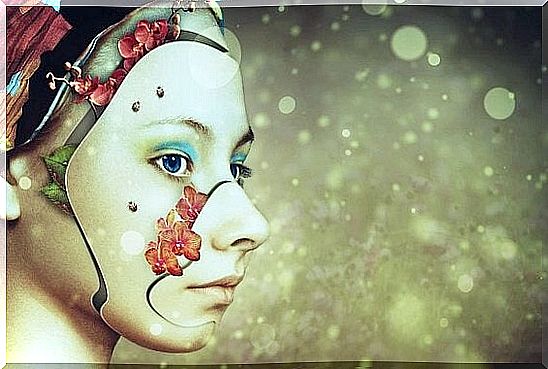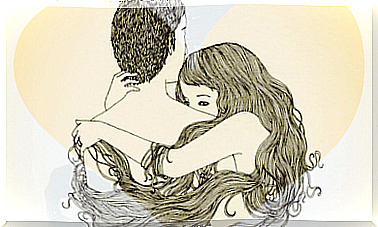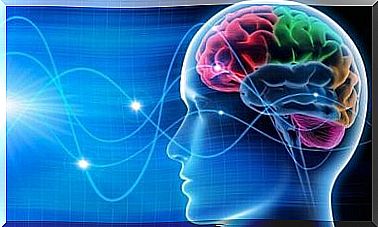The 11 Best Ways To Treat Depression

There is more than one way to treat depression. Everyone has their own inner black holes and strengths. We have many different strategies at our disposal that can fuel those strengths. The same strategies calm our despair and reduce the sleepless nights, the fear and the apathy. Everyone is a prisoner in their own prison – and not all cells can be opened with the same key.
Ways to Treat Depression
When you are diagnosed with depression, something inside of you changes. On the one hand, you may feel relieved that you finally have a diagnosis. It gives you a cause for all the misery, the fatigue, the crying and the sadness. It is a starting point in your search for the help you need. However, you are also probably asking yourself the classic question: “ What now? Is my life going to consist of medication and therapy from now on?”
Sometimes our view of how depression should be treated is rather limited. Antidepressants are by no means the only strategy and they are not always necessary. This is something that only an expert can determine (most likely in consultation with you). It is also important to know that coping with a psychological condition can be seen as a journey. A journey to find the best way home. Back to your own balance and the strength you have lost. The following tactics have been proven to affect depression (and recovery from it).

1. Collaboration between different professionals
People are seeing more and more that GPs prescribe antidepressants and anxiolytics far too quickly. These doctors usually serve as the gateway to specialized treatment for the people who need it. They are the first person someone tells them that they can’t go on like this, that they need to sleep more, relax, that they want to stop crying. But they are not experts when it comes to psychological disorders.
To treat depression in an appropriate and comprehensive manner, it is important that multiple strategies are employed. This requires more professionals to work together. It is essential for medical centers to have psychologists and psychiatrists who can work in sync with general practitioners. Even social workers are particularly helpful in most cases. Indeed, in recent years it has become clear that depression is most prevalent among the populations with the fewest resources to fight it.
2. Cognitive Behavioral Therapy
The most successful therapeutic approach to treat depression to date is cognitive behavioral therapy. When combined with medication, significant advances can be made.
This therapy is about the thought patterns of the person in question. The irrational ideas are broken down, while thoughts related to progressive changes are encouraged and reinforced. Patients thus learn to take back control of their own lives and to reason more logically and realistically.

3. Interpersonal Therapy
As mentioned, there is more than one way to treat depression. There are many different ways. It is important to find one that best suits one’s needs. While cognitive behavioral therapy has proven to be one of the most effective treatments, there are other helpful ways as well.
Interpersonal psychotherapy is useful when the major depressive disorder is a result of a patient’s relationships. For example, think of a divorce or the loss of a loved one. The goal is for the patient to address the stressful event. In addition, during this process, self-confidence is worked on and strategies are developed to improve relationships with others.
4. Emotionally focused therapy
The emotionally focused therapy of Greenberg is a combination of Rogerian humanistic therapy and Gestalttherapie. It comes in handy when treating depression. The purpose of this is to help the patient — also referred to as a client within the Rogerian movement — identify, deal with and work through their emotions. The therapist provides the patient with a safe environment where he or she can learn to manage their fears and work through their difficult emotions.
5. Movement
People with clinical depression often lack the strength and motivation to swim, ride a bike, or go to a Zumba class. But if possible, it’s best for them to get out of the house for a while, feel the warmth of the sun, hear the outside noises, and go for a walk. Just walk.
Something as simple as a 20 minute walk can be very beneficial.

6. Healthy Eating
Eating healthy won’t get rid of your depression, but it will boost your immune system and provide your brain with the nutrients it needs. The release of certain neurotransmitters that follow, such as serotonin and dopamine, will help you feel better.
We recommend eating fresh fruits and vegetables, whole grains, omega-3 fatty acids, and foods high in magnesium.
7. St. John’s Wort
Studies have been conducted suggesting that St. John’s wort is a valuable homeopathic addition to mainstream treatments for depression. Always ask an expert what the right dose is for you.
8. Request a second opinion
There are plenty of patients who show no improvement after trying various pharmacological and psychological treatments. If you come to the conclusion that you belong to that group, it is strongly recommended to request a second opinion of your diagnosis. This is because personality disorders and other problems can hide behind a depression. It is therefore sometimes difficult to detect them.
9. Social Support
Medication can treat depression, but not cure it. Psychotherapy can treat it and teach the patient coping strategies, but this too cannot cure it. So what can this do? The psychological support of others. The trust of these people and feeling understood and cared for by them. This can be combined very well with all the previous ways of treating depression.
Hence, it is important that you surround yourself with people who can help you overcome difficult situations.

10. New hobbies and interests
Your mind may not be receptive to finding new hobbies that motivate and empower you. However, doing small activities that you enjoy in your daily life, things that relax you and interest you, can be an effective strategy for treating depression.
Painting, writing, making or listening to music as well as yoga are just a few examples of the kind of activities we are talking about.
11. Mindfulness Cognitive Therapy
After you’ve managed to get through depression, the risk of a relapse still exists. After two or three years, depression can present itself again.
To prevent this, so-called attention-focused cognitive therapy is an ideal tactic. You can use breathing exercises and meditation daily to resist the negative thoughts. Even if they keep coming back like weeds.
In any case, the most important thing is that you realize that there is more than one way to treat depression. There are dozens or maybe even hundreds. You just need to find the right combination of strategies that best suits your own needs. Seeking help from a psychologist or psychiatrist can help lead you into the light.









